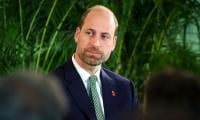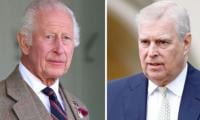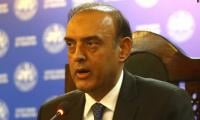Islamabad
A fact finding visit of a local NGO to Swat reveals that no legal or psychological help has been provided to the victims of Swat child abuse scandal which was unearthed in May this year.
The report of fact finding mission by Society for the Protection of the Right of Children (SPARC) talks in detail about the basic facts of the incidents and the current status. The fact finding mission visited child protection unit in Swat, Mingora Police station and met journalists in Swat. The report says that Swat abuse scandal did not attract much attention in the midst of all the corruption scandals.
The scandal was exposed in Nawakalay Mingwara in which explicit videos and pictures of boys within the age bracket of 14 to 16 years were unveiled. These children were first kidnapped, drugged and then forced to engage in sexual activity. Video and pictures were made which were then used for blackmailing the children and families while the children remained detained.
Upon investigation, the fact finding mission came know that more than a hundred children were involved and abused in this case. When FIRs were freshly registered, media reported only 17 children to be involved. People in the area and some survivors of the abuse believe that police was also involved however no police officer has been arrested yet. The abuse and filming was done in a residential areas but residents nearby had no idea what was going on in their neighborhood.
The fact finding team also got hold of a flash drive which contained 1,000 of pictures and numerous videos of children being abused by the gang. They were informed that there are more such flash drives. The report shares that the gang leader Aurangzeb had been running this activity since 15 years. All children kidnapped were abused and then filmed.
The SHO Mingora Police Station told the mission that two FIRs were lodged against the accused Aurangzeb on different dates by father of the victims on Feb 20, 2016 and March 19 however the case caught no media attention until late April to early May 2016.
The report demands psychological counseling and legal help for children and their families. It says that 15 years of abuse had a huge psychological impact on children and their families. Families of the victims are generally low-middle class and cannot afford the cost of litigation against Aurangzeb. A child rights NGO is currently providing legal aid to one of the victims however, more legal aid is needed. The report predicts that if in-time psychological help is not provided to the victims, it can lead suicides as suicide tendencies are commonly observed in such cases.
Talking to The News, Executive Director Group Development Pakistan and Chairperson National Action Coordination Group (NACG) to Eradicate Violence against Children, Valerie Khan pointed out that some accused were bailed out which would not have been possible, had the criminal law amendments act 2016 enacted by the federal government, been extended to PATA by KP governor on a priority basis. “In this recently enacted law such crimes are non-bailable and non-compoundable,” she said.
She urged civil society, lawmakers from KP and SWAT, provincial and national human rights institutions, and Pakistanis in general who care about their children, who are committed to a healthy and a dignified society and a prosperous, safe Pakistan, to come together to demand extension of those criminal law amendments 2016 to PATA by the KP Governor, to FATA by the president of Pakistan as well as in Gligit-Baltistan and Azad Kashmir.
“It is also crucial that all victims receive free legal aid and that the pending bill on the National Commission on the Rights of the Child in the federal parliament gets enacted so that relevant child protection mechanisms can be envisaged, developed, harmonised and coordinated at national and provincial levels to ensure the effective and child sensitive execution of the law, as well as the overview of the execution of child protection laws in general,” she added.
A block of the National University of Science & Technology Islamabad. — National Science and Technology...
Rawalpindi Arts Council building seen in this image. — APP/File Rawalpindi: Punjab Arts Council in collaboration...
Girls seen at the Rawalpindi Women University 's funfair.— Facebook@rawalpindiwomenuniversity/File Rawalpindi:...
Commissioner Rawalpindi Division Engineer Aamir Khattak chairs a meeting on May 2, 2024. —...
Building of the Higher Education Commission in Islamabad. — HEC/FileIslamabad: The Higher Education Commission ,...
The Allama Iqbal Open University building can be seen in this picture. — Allama Iqbal Open University website/File...







